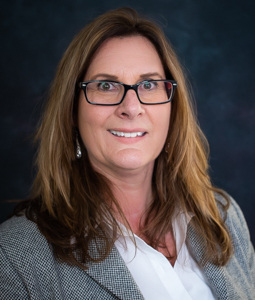College of Social Work
- SC.edu
- Study
- Colleges and Schools
- College of Social Work
- Faculty and Staff
- Margriet de Zeeuw Wright Ph.D., MSW
Faculty and Staff
Margriet de Zeeuw Wright, Ph.D., MSW
| Title: | Associate Professor MSW Charleston Site Coordinator, Interim Associate Director for the Online MSW Program |
| College of Social Work | |
| Email: | margriet@mailbox.sc.edu |
| Phone: | 803-777-7178 |
| Office: | Hamilton 329 |
| Resources: | Curriculum Vitae |

Teaching Expertise
- Direct practice grounded in common factors
- Health and mental health theory
- Advanced social work interventions
- Evaluation of practice
- Online social work education
Research Interests
- Brain-based social work education
- Trauma-informed educational practice
- Peer-support: the value lived and learned knowledge
- Human-centered design
Background
Margriet de Zeeuw Wright joined the faculty in 2013 and is the Site Coordinator for the extended-time Master of Social Work program in Charleston. Dr. Wright began her professional social work career 30 years ago and has experience in both direct and indirect practice. Her professional roles have included intake worker, clinical counsellor, group worker, supervisor, clinical manager, and consultant. She is attuned to how systems of care can potentially hurt rather than heal and she brings this sensitivity to discussions with students. Dr. Wright’s practice in the classroom focuses on skills for empathic connection, evidence-based interventions, and the importance of ongoing evaluation of practice to ensure clients’ needs are being met.
This year, Dr. Wright co-authored an article in the Community Mental Health Journal that was born out of a community partnership with an agency serving those who experience homelessness. The focus of this research was to highlight the value of peer support and how lived and learned knowledge can co-exist in effective service. She also authored the chapter, Understanding the Impact of Trauma on the Human Brain, Relationships, and Learning for an in-press book entitled Trauma-informed Care in social work education: Implications for students, educators, field, and pedagogy from Routledge. The chapter follows SAMHSA’s “4Rs” for a trauma-informed approach including realizing that trauma is widespread for clients and students, recognizing signs and symptoms of trauma grounded in neuroscience, calling on social work educators to respond using effective brain-compatible teaching and learning strategies, and to resist re-traumatization by encouraging educators and administrators to reflect on trauma-informed practice in higher education.
Dr. Wright is bringing her interest in Human-Centered Design to the development of the College’s MSW Online Program which launches in the Fall of 2025. She hopes that the online program provides innovative and engaging learning experiences for students and enables them to feel part of a vibrant learning community, no matter their location.